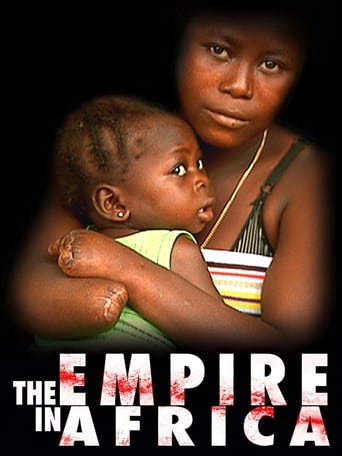Amonaghan03
I followed the situation in west Africa throughout the mid to late 90's and into the early 2000's. This film is an absolute tragedy of propaganda and revisionist history on the part of the RUF. The film consistently paints the UN and Ecowas in a negative light in contradiction to what is being shown on the screen. RUF commanders repeatedly contradict themselves sometimes denying the atrocities committed in their lust for mineral wealth out right. Charles Taylor is not once mentioned in the film. It's been categorically proved that a large part of the rebel activity was funded, planned and supported logistically by Taylor's government in a bid to siphon mineral exports from the country illegally. The film also makes no mention of the final British intervention that ended the war in May 2000. As someone who has followed the situation closely for some time it's unthinkable why this film was made.Like most pieces of propaganda this movie weaves a convincing narrative filled with statements and images designed to elicit a knee jerk moral reaction. Unfortunately anyone without an understanding of the situation will probably be drawn in to the lies.
andrewvictory
Just saw this film at the Edinburgh Fringe Festival over the past couple of days.I found the film to be very hard viewing due to the atrocities that are shown which seemed to be indiscriminate of gender or age. I personally have never been shown footage like that before for general viewing. I do agree as "Ijapa in the states" has stated that you are given an impression by the film that the RUF are responsible for the majority of the atrocities that happened in Sierra Leone.Having never lived there I would never be able to comment on this. I do however think that it is a documentary that the public should be made aware of at least as I knew very little regarding the problems that Sierra Leone have and think that this should be very much to the director and everyone involved's credit.
daniel-sarkissian
This is an excellent documentary that successfully educates the audience on the details and depth of the crisis in Sierra Leone in 1991. The film presents various opposing sides of the conflict through interviews, commentary, and visual events captured on-camera. Although it contains extremely graphic depictions of violence and is not suitable for everyone, the candid nature of the film achieves its goal of jarring its viewers both physically and emotionally. After watching the film with a few close friends, days later we were still making comments to one another and having less-than-welcoming flashbacks of the images we witnessed. For those passionate about history and the struggle of Africa, this documentary is shocking and eye-opening.
cle-of-e
"The Empire in Africa" is a courageous examination of a tragic and complex topic, the civil war in Sierra Leone, its propaganda-driven portrayal in the international media, the global commercial interests at stake, the regional and international contribution to the continued violence and the effects on the civilian population of war and poverty in a country that is extremely wealthy in natural resources. (See, I said it was complex.) The events, the various parties and issues could easily have become hopelessly confused to a viewer --so much of the film's success is that its many interviews with people from all sides and a remarkable collection of footage from various sources, is edited so that it that manages to tell the story in a clear way. It is guaranteed to arouse the viewer's indignation at the role of the rest of the world (including other African countries as well as Western states such as the UK, France and the USA, exercising political and economic influence through bilateral relations and through the United Nations) in prolonging the war in this small country. It is also an indictment of the international news media for accepting the easy answers and official stories and not digging deeper for the truth.Warning: The film has some very gory images; however I don't feel it was gratuitous but necessary to tell the truth of a story that has been much misrepresented. Some of the most disturbing footage was of violence by regional troops aligned with the government, which Director/Producer Phillipe Diaz revealed (during the Q & A after the screening at Slamdance Film Festival) had been given to him by a Sierra Leonian government official who wanted the truth revealed, although it clearly meant he had to flee his country forever. M. Diaz, who has faced a good deal of pressure not to show this film, and who himself cannot return to Sierra Leone or to Nigeria, had to disguise the true focus of the film he was making from the authorities as long as possible, finally handing over a set of 'dummy' tapes and smuggling the real ones out of the country.
